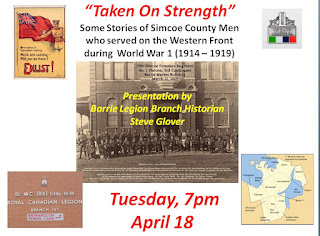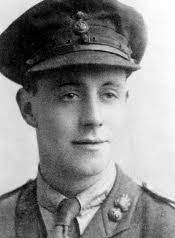While researching Marcel Audibert, a writer and friend of writer Paul Lintier*, to see
if he had written any poems, I discovered that Marcel's brother Georges was a poet
Georges Auguste Audibert was born in Lyon, France on 9th April 1885. His parents were Adrien Audibert, a professor of law in the Faculty of Law, Paris, and his wife, Jeanne, nee Murier, daughter of French Senator Louis-Auguste Munier.
Like his father and elder brother, Marcel (who was also a writer), Georges studied law and became a lawyer, qualifying in 1912.
 |
| Water distribution post, Artois, 1915 |
When war broke out, Georges became a Sergeant in the 246th French Infantry Regiment and fought in the Battles of the Marne, Crouy and Artois. After thirteen months at war, Georges was killed during a scouting mission to reconoitre the enemy positions, for which he volunteered, at Souchez on 28th September 1915. He was awarded the Croix de Guerre and the Medaille Militaire. As a writer and poet, Georges Audibert’s name is on the walls of the Partheon in Paris among the other French poets and writers who were killed in WW1.
Some of the poems written by Georges before the First World War were published under the title “Sous les Yeux de la Mort” in 1918 by Editions Georges Crès et Cie., Paris, with a promise that more of his poems were to be published, along with some of his letters. The collection was dedicated to Gabriel HAUVETTE (21 May 1887- 13 May 1910, aged 22 years).
His poem "Je voudrais que mon âme.... Poème de Georges Audibert" (1926) was set to music in 1926 by Jacques Brillouin :
“Vieilles et Vieux” a poem by Georges Audibert from “Sous les Yeux de la Mort”
Vieilles et vieux, vous qui semblez vivre sans transes
Près du feu clair moins doux que vos yeux de velours,
Et qui laissez tomber vos bras frêles et lourds
Sur vos regrets et sur vos mortes espérances.
Vous tressaillez encore des anciennes souffrances.
Vous frissonnez encore des anciennes amours,
Et les sanglots et les baisers des anciens jours
Glissent dans le secret de vos longues navrances.
Pourquoi, pourquoi toujours contempler le passé?
C’est pour s’être perdus dans un rève effacé,
Que vos regards troublés vont si loin, et s’effacent.
Ah! pauvres vieux enfants deçus, passionnés
Et qui, jusqu’au profond de vos coeurs qui se glacent,
Respirez le parfum de vos bouquet fanés!
Translaton: “Elderly women and men”
Elderly women and men, you who seem to live without exaltation
Sitting near the bright fire less sweet than your velvet eyes,
And who drop your frail and heavy arms
On your regrets and on your dead expectations.
Thoughts of old sufferings still make you jump.
You still shiver thinking about former loves,
And the sobs and the kisses of the old days
Slip into the secrets of your long heartbreaks.
Why, why are you always thinking about the past?
Is it so you can get lost in a faded dream,
That your troubled looks go so far away, then fade.
Ah! poor things - children still - disappointed, passionate
You who, to the depths of your frozen hearts,
Breathe in the scent of your faded bouquets!
The French Croix de Guerre
The Croix de Guerre is a military decoration of France created in 1915 and consists of a square-cross medal on two crossed swords, hanging from a ribbon with various degree pins. The decoration was first awarded during the First World War, again in World War II, and in other conflicts; the croix de guerre des théâtres d'opérations extérieures ("cross of war for external theatres of operations") was established in 1921. The Croix de Guerre was also bestowed on foreign military forces allied to France.
* http://fascinatingfactsofww1.blogspot.com/2023/01/paul-michel-lintier-1893-1916-french.html
Sources: Wikipedia and
http://medias.hachette-livre.fr/media/contenuNumerique/600/261121807.pdf
https://www.lieder.net/lieder/get_author_texts.html?AuthorId=28761














